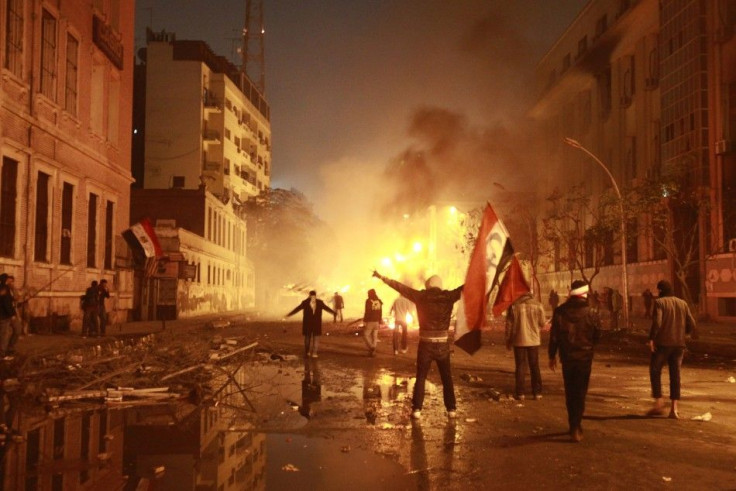Egypt Soccer Riot: Is the Government to Blame for the Tragedy?

Seventy-four people were killed during riots following a soccer match in Egypt on Wednesday night. The event was the bloodiest the sport has seen in 15 years, as fans of the home team chased rival fans and players with knives, rocks, flares and clubs. Some people were crushed to death in the mob, and parts of the stadium in Port Said were set ablaze.
The riot and its aftermath -- further riots and protests that left another 400 people injured -- are characteristic of the chaotic state of society in post-revolution Egypt.
Critics, protestors and politicians have all raged against the county's ruling Supreme Council of the Armed Forces (SCAF), the supposedly temporary military council that took control of Egypt after the fall of Hosni Mubarak last February. They blame the SCAF for the minimal police presence at the soccer game. Vastly outnumbered, the security officers at the match did little to stop the violence.
During the protests that followed the riot, hundreds of people gathered outside the Interior Ministry in Cairo and charged down, down with military rule while holding up pictures of the dead.
“Those who cannot secure and protect a soccer match cannot protect a nation at large,” the April 6 Youth Group commented, according to The Montreal Gazette.
The Muslim Brotherhood, currently the dominant party in new Egyptian politics, also blamed the military council and said the riot was part of a cycle of violence that is possibly being provoked by the SCAF in an attempt to hold on to its new, totalitarian power.
“This confirms that there is invisible planning that is behind this unjustified massacre. The authorities have been negligent,” the group said in a statement on its website.
“We fear that some officers are punishing the people for their revolution and for depriving them of their ability to act as tyrants and restricting their privileges,” it added.
The riot started on Wednesday after home team Al-Masry won an unexpected 3-1 victory over one of its biggest rivals, al-Ahly, which is also Egypt's top team. Like most Egyptians, al-Ahly supporters, known as the Ultras, are concerned about more than just sport. The Ultras were very active in protests over the last year and are notoriously antagonistic toward police and soldiers.
In a post-revolution Egypt that is no stranger to conspiracy theories, some people have suggested that the police allowed the riots to happen as an act of revenge against the Ultras, according to The Associated Press. Witnessed cited irregularities like the shutting off of stadium lights and locked exit gates as evidence.
The Ultras plotted their own vengeance on Thursday, marching with protestors to the Interior Ministry -- a focal point for many recent demonstrations and frustrations -- and clashed with security forces, who in turn fired tear gas into the crowd. Elsewhere in Cairo, many of the dead were buried.
Also on Thursday, acting Prime Minister Kamal el-Ganzouri called an emergency session of parliament. The parliament has only been operating since Jan. 23 and although its membership varies drastically in political and social ideology, it is unified in its desire to draft a new constitution and get rid of the SCAF.
© Copyright IBTimes 2024. All rights reserved.





















